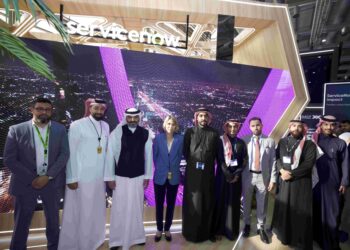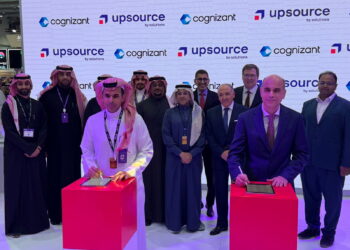What are you hearing from your customers?
It depends on where I talk to customers. In other parts of the world, it is the efficiency mindset. It’s about cutting costs and doing more with less. In the US, they’ve been talking about recession for more than one and a half years now. It is the same mindset in the UK, where there is inflation and supply chain challenges. There are cost pressures everywhere, and consumer demand is beginning to weaken in those markets. So, as a result, the focus is more on the efficiency play.
It is a different story here in the Middle East. After the war in Ukraine and the oil bonanza, the current budget surplus in the GCC was $660 billion. That is causing a growth mindset here. Though efficiency is still important, there’s so much growth in these markets that customers tell me about innovation; they’re standardising their back office. By back office, we mean ERP, EPM, and supply chain. The uptake of Oracle Fusion is rapidly increasing in this region; customers are moving from existing on-premise or non-Oracle Applications to our cloud. Fusion Applications include everything from ERP, EPM, and supply chain to CX.
What can you tell us about your supply chain management product’s new AI and automation capabilities?
Within the supply chain, there’s a big focus on AI. We are using the AI engine to predict lead times from suppliers better so that it compares historical delivery times from a supplier for a specific product. It’s a very fine-grained analysis. For example, if a supplier says eight days, and historically, they’ve given to you in five days, there is no need to wait eight days for the planning period. Similarly, they say eight days and have delivered, historically, in 11 days, the AI engine will tell you to change your production plan. So that is picked up in our supply chain planning module. Another new feature we announced at this Cloud World tour is rebate management, which is useful in some industries like pharmaceuticals and consumer packaged goods, where cash flows both ways from customer to supplier. This process gets complicated very quickly when you have many product lines and rebates, and you need to know which ones are valid or which ones you need to have a complete audit trail for. In large companies, it becomes cumbersome because so many people are working on this. So that whole process has been automated with rebate management. And the third thing within the supply chain that we have announced is the order-to-cash process. What we have unique to Oracle, which is different from other cloud solutions, is that we have subscription management, order management, configurator, and pricing. And, of course, we have finance. We have stitched this all together so that it’s one seamless flow.
How are you leveraging AI and ML in your product portfolio?
We have been leveraging it for many years on the infrastructure back end with our autonomous database and automated patching for security, etc. On the application side, we are using AI in many areas. One is conversational user experience, which will guide the user through whatever the next step needs to be. That’s called digital assistant, powered by AI. Digital assistants can be used in ERP, supply chain, HCM or CX. Another example in the supply chain is the lead time example that I just gave you, where you have a more accurate version of the lead time. When it comes to HCM, we are using the AI engine within recruiting process, which will predict which candidate is likely to last in a company and build a carrier versus which candidate is likely to leave after one or two years. And then, there is a customer data platform in our user experience called Unity. Unity has pre-built AI and ML models specific to each industry. It’s fine-tuned for a very large volume of industry data sets to make predictions.
How do you tackle AI bias, especially in HCM?
In HCM, built into our product already are capabilities for diversity, equity, and inclusion. It is built into the product to minimize any bias, whether it’s in the case of hiring or promotions. There’s something called a three-by-three matrix. So as a manager, I will know which of my employees fall into what categories based on their performance rather than other extraneous factors that can bring in bias. It’s objective and based on the data the system tells. And it is foolproof because if somebody needs to do the audit, you have the data backing it up.
Can you tell us how Oracle simplifies container management in your cloud environment?
The product supports containerisation. You could build code in a Kubernetes engine and host it in OCI. It can be built in any container – it can be a headless container or have a user. All of that is supported by the same security standards that OCI delivers. So to answer your question, is Kubernetes supported? Yes. Is containerisation supported? Yes. Are microservices supported? Yes.










Discussion about this post